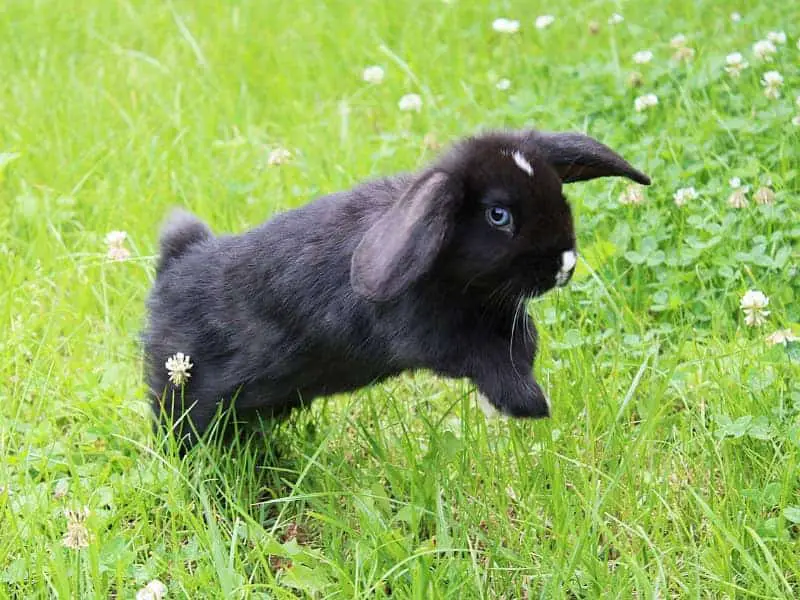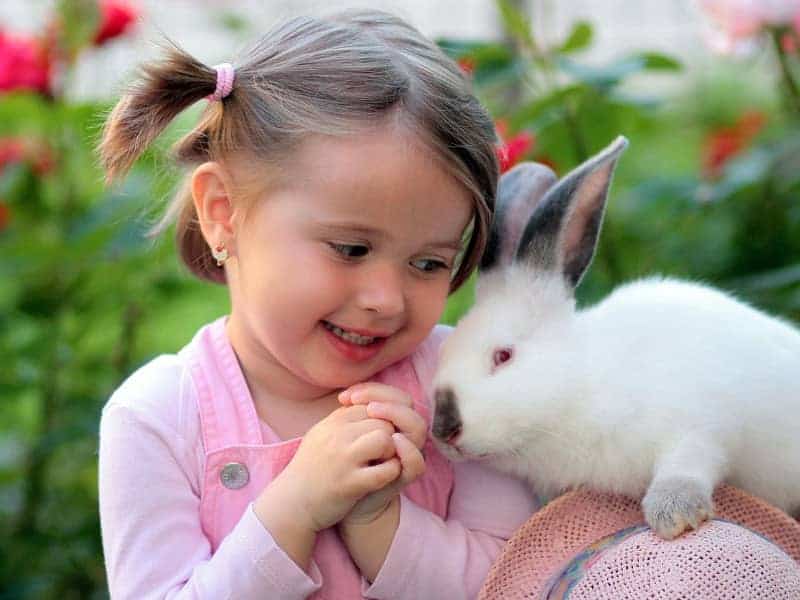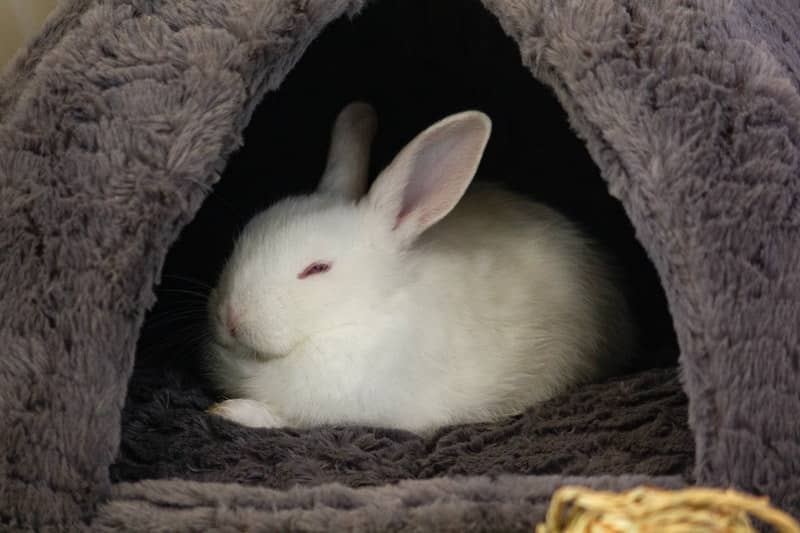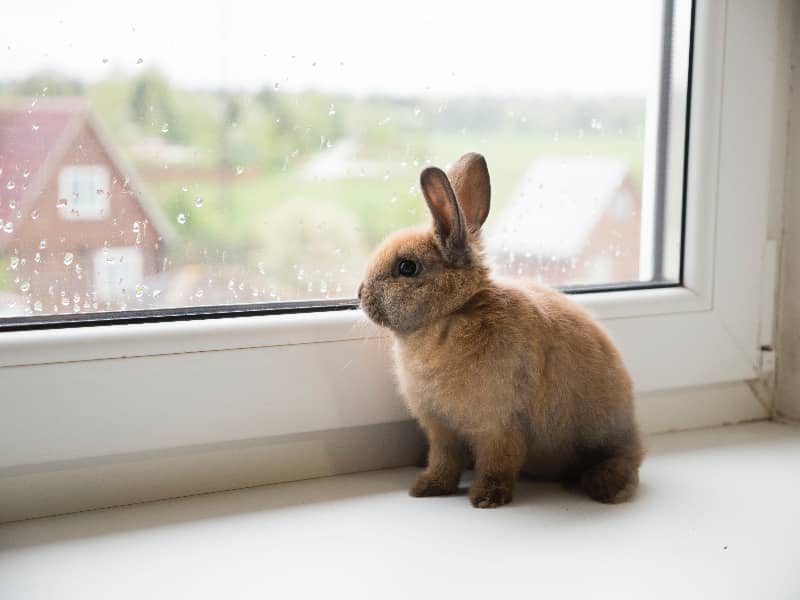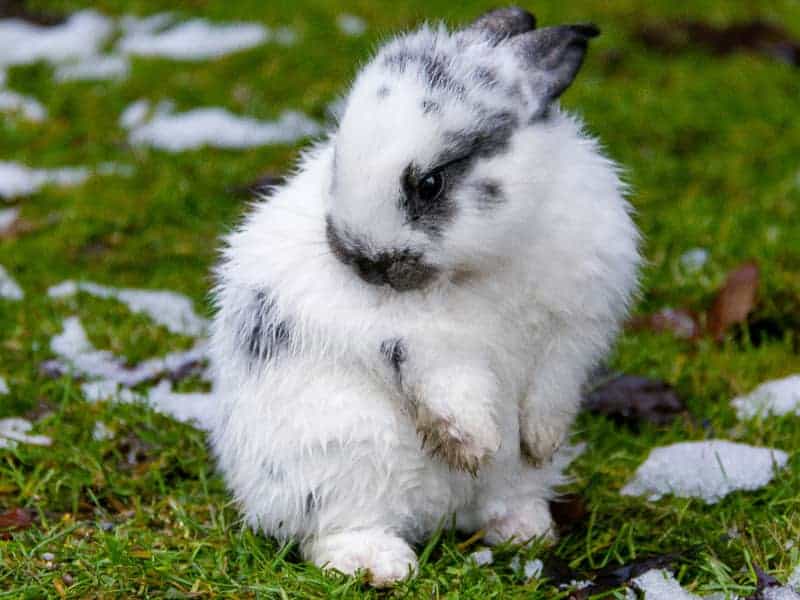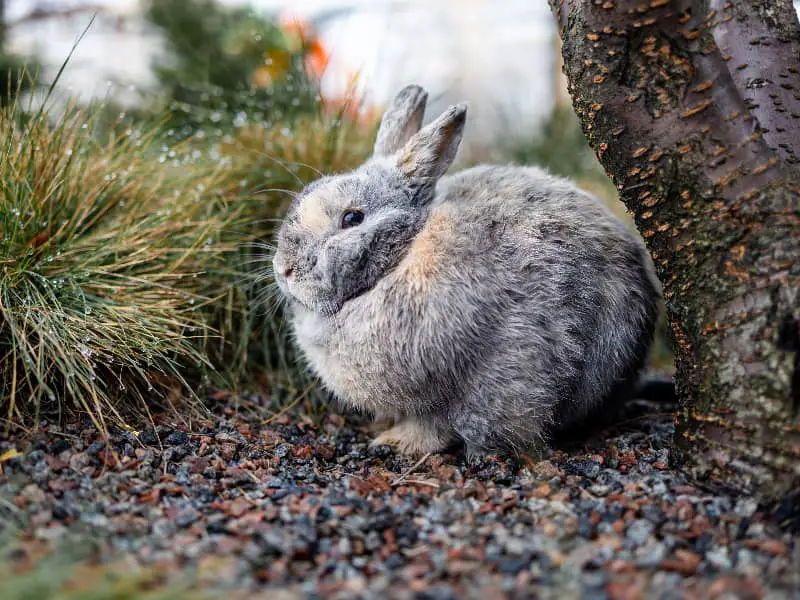
Rabbit shampoo
Welcome, dear rabbit friends and those who want to become one! This blog post is all about rabbit shampoo. Yes, you heard right, there are actually special shampoos just for our fluffy friends. But why is this so important and what do you need to bear in mind? You can find out this and much more in the following sections.
Why is rabbit shampoo important?
Rabbits are not only cute but also very sensitive animals, especially when it comes to their skin and fur. Conventional shampoos developed for humans or other pets can disturb the pH value of rabbit skin and lead to skin irritation. A specially formulated rabbit shampoo takes into account the special needs of the animals and ensures gentle cleansing.
Rabbits should not be bathed
Please only bathe your rabbit in exceptional circumstances. The animals have an aversion to water and will only go in voluntarily in emergency situations. The shampoos we are talking about here are designed to clean your rabbit in special situations. I.e. when it cannot clean itself. This may be due to illness, or it may be medically necessary.
As a rule, rabbits are excellent at grooming themselves and a bath is not necessary. However, you can help your rabbit with a fur brush. This is always preferable to a bath. If a bath is necessary, only bring the areas that really need it into contact with water. You can find tips on this in our blog post.
Aim of the blogpost
This blog post is designed to give you a comprehensive overview of the various aspects of rabbit shampoo. From choosing the right product to correct application, you'll learn everything you need to know to provide your rabbit with a safe and enjoyable grooming experience.
Overview of the main topics
In the following sections, we will look at the anatomy of rabbit skin, introduce different types of rabbit shampoos and give tips on how to use them correctly. We will also clear up some myths and misconceptions and take a look at the ecological aspects of rabbit shampoo.
I hope this introduction has piqued your interest. Now let's delve deeper into the world of rabbit shampoo!
The anatomy of rabbit skin
Before we get into the different shampoo options, it's important to have a basic understanding of rabbit skin anatomy. Only then can we truly understand the importance of a specific rabbit shampoo.
Special features of rabbit skin
A rabbit's skin is thinner and more sensitive than that of many other animals. It is less elastic and has a smaller number of sebaceous glands, which are responsible for the natural oiling of the skin. The skin is therefore more susceptible to dryness and irritation. A specially formulated rabbit shampoo can help to protect and care for this delicate skin barrier.
Why conventional shampoo is not suitable
Many people think that a normal shampoo that they use themselves or for their other pets is also suitable for a rabbit. However, this is a fallacy. Conventional shampoos often contain ingredients such as parabens, sulphates and artificial fragrances, which can irritate a rabbit's skin. In addition, the pH values of these shampoos are often not adapted to the special needs of rabbit skin.
The importance of the pH value
The pH of rabbit skin is usually between 6.2 and 7.3. Ideally, a shampoo should have a similar pH so as not to disrupt the natural skin barrier. An incorrect pH can lead to a number of problems, including dryness, itching and even bacterial infections. Therefore, it is important to choose a rabbit shampoo that has been specifically formulated for the pH of your rabbit's skin.
With this knowledge in mind, we can now turn our attention to the different types of rabbit shampoos and how to use them.
Types of rabbit shampoo
Now that we understand the basics of rabbit skin, we can move on to the different types of rabbit shampoos. There is a wide range of options available, and choosing the right product can make a big difference to your rabbit's health and well-being.
Medicinal shampoos
Sometimes a rabbit needs a special shampoo for medical reasons. These shampoos often contain antiseptic or antifungal agents and are usually prescribed by a veterinarian. They are specially formulated to treat certain skin problems such as fungal infections, parasites or other skin irritations. It is important to use such medicated shampoos only under veterinary guidance.
Natural rabbit shampoos
Natural shampoos are a good choice for general coat care. They usually contain herbal ingredients such as aloe vera, chamomile or lavender, which soothe the skin and soften the coat. These shampoos are often free from harsh chemicals and fragrances, making them a gentle option for rabbits with sensitive skin.
Shampoos for special coat types
Just like humans, rabbits also have different coat types. Some have short, smooth fur, while others are long-haired or have a dense undercoat. There are shampoos that have been specially developed for these different coat types. They contain different amounts of moisturizers and oils to meet the specific needs of each coat type.
That was a brief overview of the different types of rabbit shampoos available on the market. In the next section, we will look at how to use these shampoos correctly.
Rabbit shampoo - The correct application
Now that we've learned about the different types of rabbit shampoo, it's time to look at how to use them correctly. Because even the best shampoo is of little use if it is not used correctly. Here are some tips and tricks to help you give your rabbit a pleasant bathing experience.
Preparation
Before you start bathing, you should make a few preparations. Make sure you have all the necessary utensils to hand: shampoo, towels, a small bathtub or sink and possibly a hairdryer with a cold setting. It is also advisable to brush the rabbit before bathing to loosen tangles in the fur.
Implementation
Fill the bathtub or sink with lukewarm water. Make sure that the water is not too hot or too cold, as this could irritate the rabbit's skin. Carefully place the rabbit in the water and wet its fur without wetting its eyes or ears. Then apply a small amount of the selected rabbit shampoo and gently massage it into the fur. Rinse the shampoo out thoroughly to avoid any residue.
Aftercare
After bathing, you should dry the rabbit carefully with a towel. Avoid rubbing vigorously as this could irritate the skin. If the rabbit's fur is very thick, you can use a hairdryer with a cold setting to speed up the drying process. Make sure to keep the hairdryer at a safe distance and constantly check the fur with your hand to make sure it doesn't get too hot.
Common errors in the application
Even with the best preparation and intentions, mistakes can happen. In this section we would like to highlight some of the most common mistakes when using rabbit shampoo so that you can avoid them.
Too much rabbit shampoo
A common mistake is using too much shampoo. Rabbits are small animals with sensitive skin, and an overdose can lead to skin irritation and itching. A small amount is often enough to get the coat clean and fresh. If you are unsure how much shampoo to use, follow the instructions on the packaging or consult your vet.
Incorrect water temperature
The right water temperature is crucial for a pleasant bathing experience for your rabbit. Water that is too hot can dry out and irritate the skin, while water that is too cold can cause stress and discomfort. The water should be lukewarm, around the same temperature as room temperature, to ensure it is comfortable for the rabbit.
Incomplete rinsing
Another common mistake is not rinsing the shampoo out completely. Shampoo residues can irritate the skin and cause itching. It can also make the coat sticky and uncomfortable. Therefore, make sure to rinse the shampoo thoroughly until the water runs clear.
These are some of the most common mistakes made when using rabbit shampoo. If you keep these points in mind, you'll be well on your way to providing your rabbit with a safe and enjoyable bathing experience.
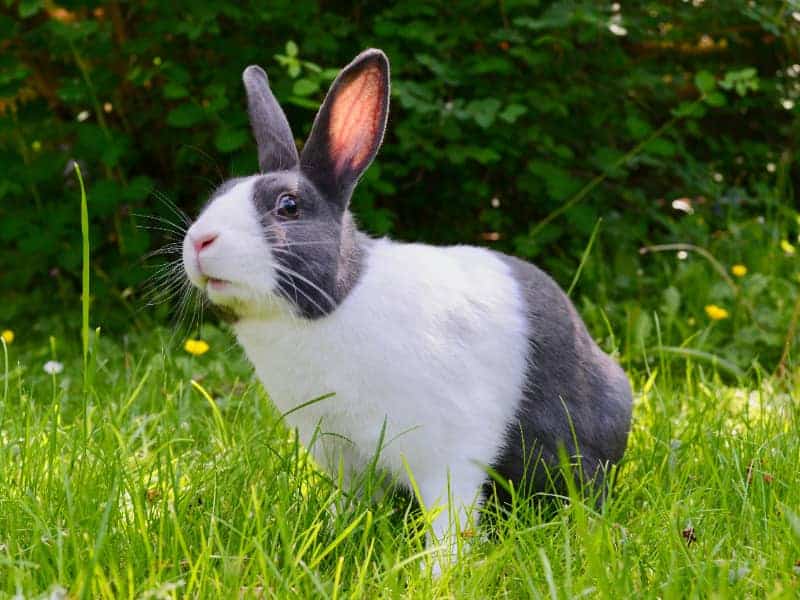
Allergies and skin irritations
Even though rabbit shampoo has been specially developed for the sensitive skin of our fluffy friends, allergies or skin irritations can occur in some cases. In this section you will learn how to recognize and treat such problems.
Symptoms
The symptoms of an allergy or skin irritation can range from mild itching and redness to more serious problems such as skin rashes or hair loss. If you notice such signs in your rabbit after bathing, you should consult a vet immediately.
Dealing with allergies
If your rabbit has an allergic reaction, it is important to rinse the affected areas thoroughly with clean water to remove any shampoo residue. A vet can make an accurate diagnosis and recommend appropriate treatment, which often includes anti-allergic medication or special shampoos.
Recommended products
There are hypoallergenic rabbit shampoos on the market that have been specially developed for animals with sensitive or allergy-prone skin. These products are usually free from fragrances, dyes and harsh chemicals. If your rabbit is prone to allergies, such a product could be the best choice.
Rabbit shampoo for kittens
Young rabbits are particularly sensitive and therefore require special care. In this section you will find out what you should consider when choosing and using rabbit shampoo for young animals.
Special features
Young animals have even more sensitive skin than adult rabbits and are therefore more susceptible to skin irritations and allergies. In addition, their immune system is not yet fully developed, which makes them more susceptible to skin infections. It is therefore particularly important to choose a mild shampoo that has been specially formulated for young rabbits.
Recommendations
There are special shampoos for young rabbits that are milder than products for adult animals. These shampoos often contain natural ingredients such as aloe vera or chamomile, which soothe and moisturize the skin. Be sure to choose a product that is free of harsh chemicals and fragrances.
What to avoid
Avoid bathing young rabbits unless it is absolutely necessary, for example in the case of severe soiling or medical treatment. Too frequent bathing can destroy the skin's natural protective film and increase the risk of skin problems. If a bath is necessary, follow the vet's or shampoo manufacturer's instructions carefully.
Comparison: Shampoo vs. dry shampoo
Not every rabbit needs or tolerates a water bath. For such cases, there are alternatives such as dry shampoo. In this section we compare the advantages and disadvantages of liquid rabbit shampoo and dry shampoo.
Advantages and disadvantages
Liquid shampoo provides a thorough clean and is particularly effective for heavy soiling or medical skin problems. The disadvantage is that bathing can be stressful for many rabbits and there is a risk of skin irritation.
Dry shampoo, on the other hand, requires no water and is therefore less stressful for the animal. It is a good option for a quick clean or for rabbits that are afraid of water. The disadvantage is that it does not clean as thoroughly as liquid shampoo and is not suitable for treating skin problems.
Rabbit shampoo - Areas of application
Liquid shampoo is generally used for deep cleansing or to treat specific skin problems. Dry shampoo is more suitable for quick refreshment between baths or for animals that cannot be bathed.
Expert opinions
Most vets recommend bathing rabbits only when absolutely necessary and then using a mild, specially formulated shampoo. Dry shampoo can be a good alternative for regular grooming, but should not be considered a substitute for thorough cleaning or medical treatment.
Rabbit shampoo, common misconceptions
There are many myths and misconceptions about rabbit shampoo that can cause confusion. In this section, we clear up some of the most common misconceptions.
"A good shampoo for humans is also good for rabbits"
This is a widespread misconception. As already mentioned, rabbits have very sensitive skin with a special pH value. Shampoos for humans are often too aggressive and can irritate the rabbit's skin.
"Rabbits don't need a special shampoo"
Some people believe that water alone is enough to keep a rabbit clean. Although rabbits usually groom themselves well, there are situations in which a special shampoo is necessary, for example in the case of skin diseases or heavy soiling.
"Frequent bathing keeps the rabbit clean"
Another myth is that frequent bathing keeps rabbits clean and healthy. In fact, too frequent bathing can dry out the skin and lead to skin problems. Most experts recommend bathing rabbits only when absolutely necessary.
Ecological aspects of rabbit shampoo
In this day and age, it is more important than ever to make environmentally conscious decisions. This also applies to the choice of rabbit shampoo. In this section you will learn how to make an environmentally friendly choice.
Biodegradable ingredients
Some rabbit shampoos contain biodegradable ingredients that are less harmful to the environment. These shampoos are often made from natural ingredients and do not contain harsh chemicals or synthetic fragrances.
Sustainable packaging
Packaging is another important factor to consider when choosing an eco-friendly rabbit shampoo. Some brands offer their products in recyclable or reusable packaging, which reduces the environmental footprint.
Rabbit shampoo - cruelty-free
Many people make a point of choosing products that have not been tested on animals. There are a number of rabbit shampoos that are certified cruelty-free. These products are often just as effective and safe as other brands, but they offer the added benefit of being ethically sourced.
Conclusion: Rabbit shampoo
We've learned a lot about rabbit shampoo in this blog post, from the anatomy of rabbit skin to the different types of shampoos, how to use them correctly and the ecological aspects. Skin care for your rabbit is an important topic that should not be taken lightly.
Important points
- Rabbits' skin is sensitive and has special needs that should be taken into account when choosing a shampoo.
- There are different types of shampoos, including medicated, natural and those for special coat types.
- Correct application and preparation are crucial for a safe and effective bath.
- There are alternatives such as dry shampoo for rabbits that do not like to be bathed.
- Environmentally friendly and ethical aspects should not be ignored when choosing a product.
Final thoughts
Choosing the right rabbit shampoo is an important step in ensuring the health and well-being of your rabbit. With the information in this blog post, you'll be well equipped to make an informed decision.
I hope this blog post was informative and helpful for you. If you have any further questions or comments, please don't hesitate to ask. Your feedback is always welcome!
Author

-
Garden animal - A life with nature
Welcome to my animal blog! My name is Dirk and I am happy to take you on my journey through the fascinating world of animals and gardening.
Born 54 years ago, I have had an insatiable curiosity for the animal world around me since childhood. Although I have moved professionally in other industries, my true passion has always been animals and nature. It is remarkable how a small garden has become such an important part of my life.
Many of my fondest memories are associated with the animals that share our home. Whether it's the curious squirrels that scurry across the trees in the morning, the colorful variety of birds that visit our feeders, or the busy bees and butterflies that pollinate our flowers, every moment with them is invaluable to me.
This blog is my contribution to share my experiences, discoveries and insights with like-minded people. Here I will share stories of unforgettable encounters with animals, give tips on gardening and creating wildlife-friendly habitats, and take you on my journeys through nature.
Thank you so much for being here!
Cordial,
Dirk aka garden animal
Last posts
- 27. February 2024PetsVeganes Hundefutter – Grün und Gesund?
- 18. January 2024ChickensOregano für Hühner
- November 27, 2023HamsterDiurnal hamsters
- November 24, 2023HamsterHamster hammock

